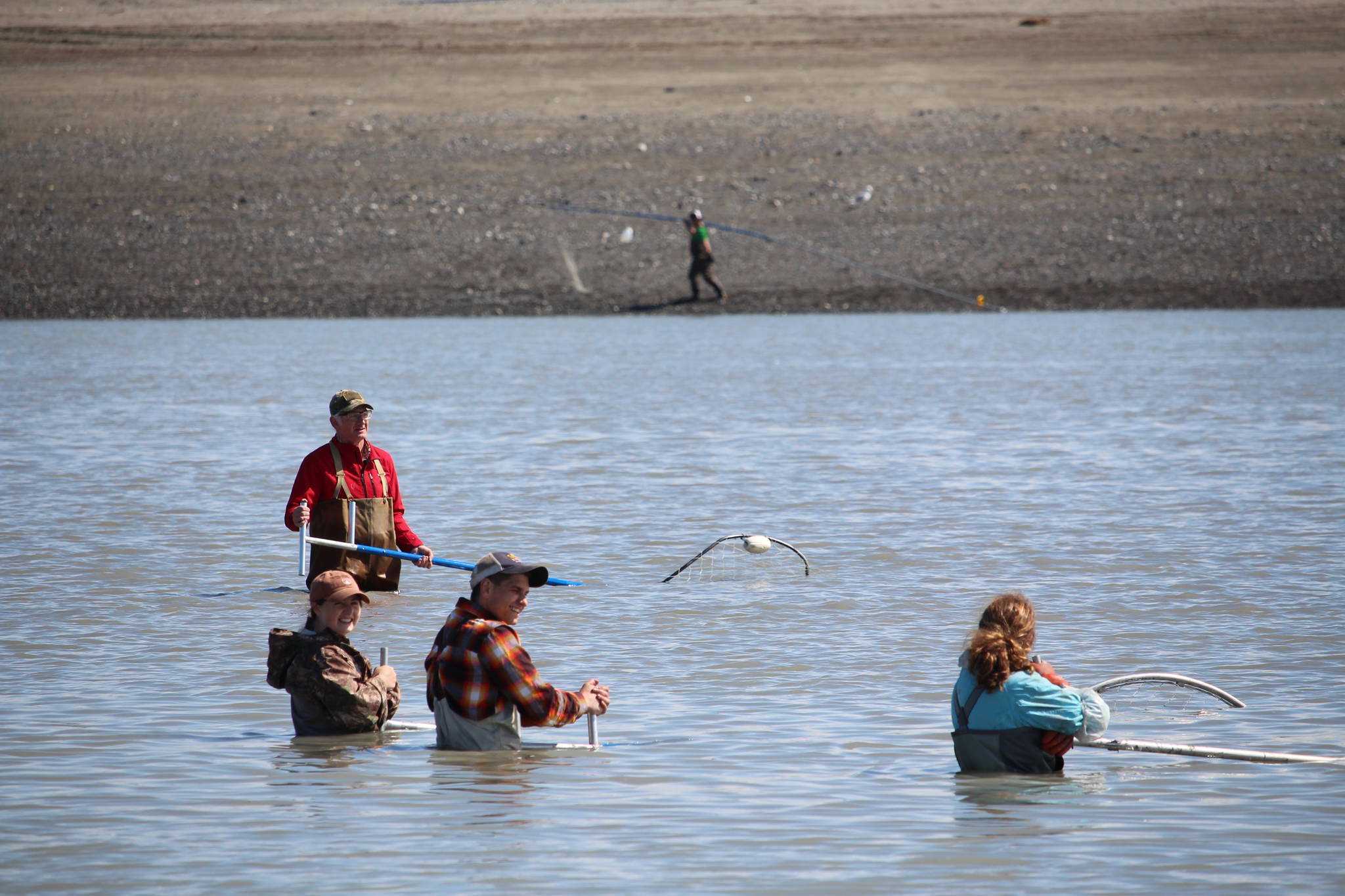Starting tonight, Kenai Peninsula College will host a series of virtual presentations on climate change and its impacts to hunting and fishing on the Kenai Peninsula and the Cook Inlet watershed.
Part one of the series is titled “Fisheries” and will begin tonight at 6 p.m. and open with a discussion about the changes seen in the local fisheries over the years. The initial discussion will be led by Hope Roberts, owner of Surreel Saltwaters fishing charter; Brent Johnson, Cook Inlet commercial fisher and Kenai Peninsula Borough Assembly member; and Dave Atcheson, local author, sport fisher and evening program coordinator for KPC.
Atcheson said Tuesday that he has been fishing on the Kenai Peninsula for 40 years, and he will be talking anecdotally about the changes he has seen personally over the decades, especially when it comes to the size and availability of king salmon on the Kenai River.
“You know the streams on the lower peninsula, they open on Memorial Day,” Atcheson said. “And you used to be able to fire the grill up and bring home a king, and that’s not the case anymore … my nephew, he’s 25 now, and when he was 13 I can remember him catching three kings, all over 50 pounds, in one day on the Kenai River.”
Sue Mauger, the science and executive director for Cook Inletkeeper, and Dr. Erik Schoen with the University of Alaska Fairbanks will follow the discussion with a presentation titled “Kenai Peninsula Fisheries in a Time of Change: Historic Trends, Glimpses of the Future, and Strategies for Building Resilience.”
Mauger said Tuesday that the presentation will touch on some of the latest research around stream temperatures and their effect on salmon populations, including the results of a study published earlier this year that was co-authored by Mauger and looks at the impact of freshwater temperatures on chinook salmon spawning.
“The science will create a little bit of context for the conversation, but I’m hoping that it will really be an opportunity for people to share what they’ve seen as the rivers have changed,” Mauger said.
Next Wednesday, KPC will hold the second part of the series, titled “Wildlife.” This portion will feature two presentations: one by Dr. John Morton titled “Climate Effects on Moose, Caribou and Sitka Black-tailed Deer on the Kenai Peninsula and Prince William Sound,” and another by Hope Roberts and Erin Shew titled “Imaq Ileum Quip (The Ocean is a Part of Me): Climate Change and Subsistence in the Church Region.”
The presentations will be free to the public, but participants must register for the webinar on Zoom in order to watch. Participants will be able to submit questions in the chat box during the presentations, which will be answered afterward by the hosts.
Visit kpc.alaska.edu to register for the webinars.
For more information about these events, contact Atcheson at daatcheson@alaska.edu.

